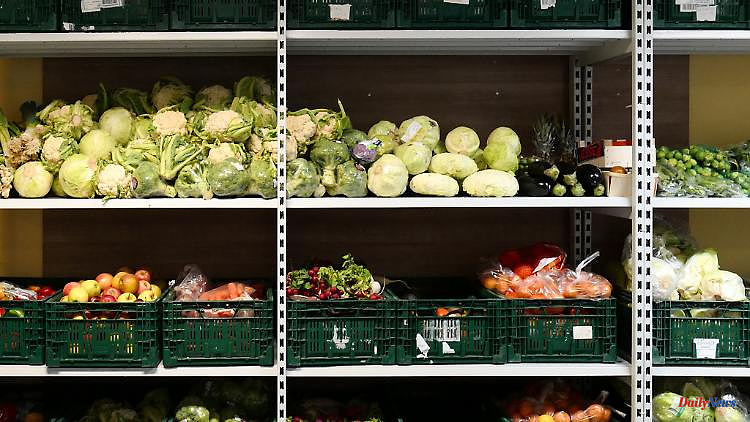Pandemic, inflation: The poverty rate in Germany reached a new high in 2021. In Thuringia, two vulnerable groups are particularly affected.
Erfurt/Berlin (dpa/th) - The proportion of poor people in Thuringia has continued to rise. The poverty rate in Thuringia in the second Corona year 2021 was 18.9 percent and thus one percentage point higher than in the previous year. That is an increase of 5.6 percent, according to the Poverty Report of the Parity Welfare Association. Thuringia was thus well above the national average of 16.6 percent and is therefore considered to be particularly poor in comparison. In Thuringia around 400,000 people are poor.
The report is based on figures from the Federal Statistical Office. In Germany, poverty is not defined by direct need such as hunger or homelessness, but by household income and the resulting opportunities for social participation. The poverty rate indicates the proportion of the population that has to get by on less than 60 percent of the median income.
For a one-person household in Germany, this limit was 1148 euros per month last year (previous year: 1126 euros). Homeless people or people in care facilities or dormitories as well as prisoners or refugees in communal accommodation are not included in the surveys.
Across Germany, the at-risk-of-poverty rate reached a new high of 16.6 percent last year. According to this, 13.8 million people in Germany live below the corresponding limit - 600,000 more than before the pandemic. Thuringia is in 13th place in a country comparison. Only Saxony-Anhalt, Berlin and Bremen are still behind the Free State.
The poverty rate of 18.9 percent in Thuringia not only shows eastern Thuringia (18.9 percent), but also central and northern Thuringia with rates of around 20 percent and, at the better end, southern Thuringia with 15.8 percent.
"The fact that the poverty rate continues to rise unabated and that Thuringia is constantly above the national average is unacceptable. The state urgently needs to take countermeasures here, combating poverty must be a central political issue," said Stefan Werner, state director of the parity. "We need functioning, long-term concepts." It is particularly alarming that almost 21 percent of children and young people and around a quarter of pensioners are affected by poverty.
In view of the currently high inflation rate, the association expects the situation to deteriorate further. Inflation will probably widen the gaps between poorer and richer households significantly again. "I am concerned about further developments. Rising inflation will bring more people into poverty," said Werner. A targeted relief package from the federal government is needed for low-income households. Specifically, the standard rates for basic security, housing benefit and student loans would have to be adjusted.












